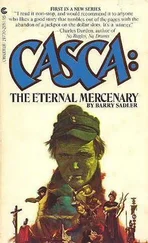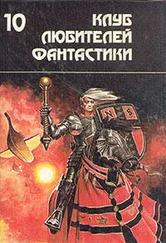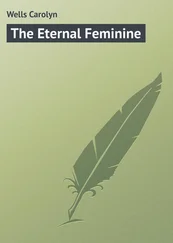The former yakuza folded his arms. Now he seemed to be staring at me, but his sunglasses made it hard to tell.
After a while he said, “You said your grandmother passed away?”
“Yes, six years ago.”
“Did she have a happy life?”
“I think so.”
Kageura’s expression seemed to soften momentarily. But that might have been my imagination.
“Glad to hear that.”
“Did you ever meet her?”
“No,” he replied immediately. “I had absolutely no interest in his family.”
He abruptly got to his feet then practically shouted, “I’m done with my story. Now get out of here!” His tone was intimidating and final.
I stood up and thanked him. The next instant, something totally unexpected happened. Kageura, sunglasses still on, pulled me into a tight hug. I froze, at a loss for how to react. I could feel the warmth of his thin, old frame. Then he released me.
“Pardon me. It’s just that I like young men,” he said with a grin, and instructed his bodyguard to see me to the door.
Then Kageura left the room.
The young man led me to the entryway. “I was able to listen to a moving story,” he said, bowing deeply.
I bowed in return and left the Kageura residence.
The hot summer was drawing to a close. So was the journey to learn about my grandfather.
As summer turned to autumn, I set about collating the stories about him for Mom. I plugged the voice recorder into my computer and listened over and over again to the tales. I had asked Keiko to let me handle the job of putting everything together. I thought that she might turn me down, but she had no objections.
“You’ve really put a ton of work into this project from the beginning, Kentaro. So, of course you should be the one to bring it all together.”
I had no intention of hastily writing everything up in a slam-dunk manner. It wasn’t my intent to romanticize my grandfather, but I hated the idea of putting his story into words before I was able to convey his true form. But as I listened repeatedly to the testimonials on the voice recorder, I began to think that I should let Mom listen to all of the stories.
I received word from Suzuko Emura that her father Genjiro Izaki had passed away in mid-August.
“He looked very peaceful as he went,” she told me at the funeral.
I saw his grandson, Seiichi, when I went up to the small table in front of the coffin to light a stick of incense. At first I didn’t recognize him. It was hard to believe that he was the same youth whom I’d met in that hospital room. He had cut off his long hair and dyed it from blond to his original black. We didn’t speak, but once he realized who I was, he bowed deeply.
Small changes were taking place in me as well. I opened up my law textbooks that had been collecting dust for some time. And I found myself wanting to try one more time to pass the bar exam.
I’d regained the desire I’d once had to become a lawyer and to devote myself to helping others. Since such a naive motivation and dream had begun to make me feel embarrassed, it was a mystery even to me that I now wanted to pursue that goal more than ever.
___
At the end of August, Keiko invited me out for drinks. One look at her face told me there was something weighing on her mind.
After we had sat down and ordered beer, Keiko said with forced casualness: “Takayama-san formally proposed to me.”
“Oh. And how did you reply?”
She didn’t answer.
“I really don’t want to have to call that man ‘brother.’”
“Please don’t say that. He’s very sorry for what happened that time. He says he took Takeda-san’s insults against his company personally and lost his cool.”
“But he still insulted our grandfather. Not directly, but he did insult all of the kamikazes.”
“And Takayama-san regrets that. After listening to Takeda-san, he realized that he’d had the wrong idea. You might find it hard to believe, but he was crying when he told me that.”
That was very difficult for me to even imagine, but I trusted that Keiko wouldn’t lie to me. “Do you really think you’ll be happy as a couple?”
She seemed a bit peeved by my question. “Yes, I do think I’ll be happy. He loves me, and—”
“And he meets your qualifications for a spouse.”
“Is that so wrong?”
I shook my head. To women, marriage is about reality. And he really did seem to love her. Sure, he was biased, but that didn’t necessarily make him a bad person. If anything, for an elite like him to admit fault and weep in remorse suggested that he was a fairly sincere human being.
And besides, Keiko was committed to her dream of getting a book published. He was someone who could help her pursue that dream.
“There’s just one thing that bothers me,” I said. “You haven’t said anything about the most important factor.”
“What?”
“Do you love Takayama-san?”
Instead of answering, Keiko picked up her beer and silently drained her glass. She ran a finger along the rim.
“And what are you going to do about Fujiki-san?”
Her face went pale.
“Fujiki-san saying that he wanted to marry you was probably him taking a leap into the dark. I think it required death-defying courage for him to ask you.”
Keiko looked down. Then she said in a barely audible voice, “I think so, too. I’ve done something awful, haven’t I?”
“I think it was a childish form of revenge. But if you agree it was wrong, then I’ve nothing more to say. But I do want you to properly apologize to Fujiki-san at least.”
Keiko nodded.
“Your life’s your own, and I won’t say anything more about your marriage plans. You should choose what you think is best.”
“Okay,” she said.
I changed the subject, talking about how I meant to throw myself into my studies like mad to try for the bar again next year. At first she seemed surprised, but then she smiled and said, “Good luck!”
I wasn’t anxious about the exam. Looking back, on my first attempt I had been tripped up by ambition. Failure had sparked impatience. And on the last attempt I had just been dumped, so I was in a very bad state of mind. But now, I surprised myself by how calm and settled I was as I tackled my studies. I felt as though I could simply do my best and then leave the rest up to fate. If I failed, then my plan was to look for a job of some kind. Having a job wasn’t a bad thing. In fact, I felt as though I should participate in society by earning a living. And if I felt like it, I could try for the bar again in my thirties, like Grandpa had done.
“By the way, why do you think Grandfather Miyabe ended up dying a kamikaze?” Keiko said out of nowhere.
“This is just a guess, but…” I trailed off.
“It’s okay, tell me, Kentaro.”
“What Kageura said… the stuff about the Yamato heading to Okinawa even though the crew knew she’d be sunk. It was a pointless death, but they couldn’t stand by and do nothing while there were other people fighting in Okinawa.”
Keiko looked at me with a serious expression.
“Grandfather saw off many kamikaze pilots, a good number of whom had been his own students. Maybe it made him think that he shouldn’t live on when they’d all died.”
Keiko looked down towards the table, focusing on the glass before her. Then she replied softly, “I don’t think that’s it.”
I waited for her to expand on her response, but she didn’t explain. “About Kageura-san, I think I understand his feelings,” she said instead. “He admired our grandfather from the bottom of his heart.”
Maybe he did, I thought.
Читать дальше

![Nick Cracknell - The Quiet Apocalypse [= Island Zero]](/books/28041/nick-cracknell-the-quiet-apocalypse-island-zero-thumb.webp)










